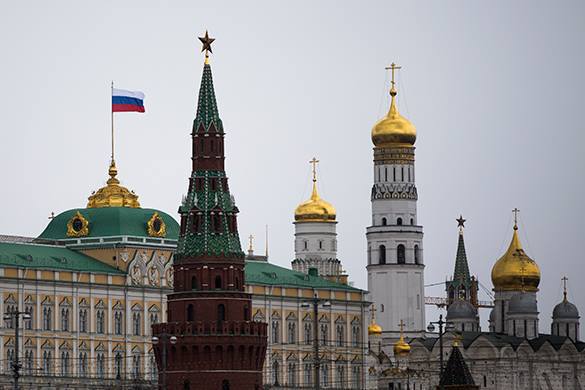Russia can not change America. Confrontation will continue
There is a fundamental difference between the cold war period and the current situation in the world, chief editor of Russia in Global Affairs, Fyodor Lukyanov, said at a recent discussion platform "Tverskaya-XXI" (joint project of the Museum of Contemporary History of Russia and the Russian Patriotic Center).

The topic for the discussion was the relationship between Russia and the West. In Russia, it is believed that the cold war started after the British Prime Minister Winston Churchill delivered his speech on 5 March 1947 in the USA.
The discussion was titled "Shadows of the Cold War: Russia and the West in Modern Reality."
General Director of the Museum of Contemporary History of Russia Irina Velikanova opened the meeting. She noted that after Churchill's speech, it was the confrontation between the two political and ideological systems that was showing greatest influence on the development of separate countries and entire regions for more than 50 years.
"Foreign policy agenda has been affecting life in Russia during the recent years. Every person in the street can feel the beat of international politics in their lives. We live under sanctions now, which makes us compare the times we live in today with the period of the Cold War, so we recall how it all began," international journalist Yevgeny Primakov, a moderator of the discussion said.
The time that we are living today is an incredibly interesting period in the history of Russia after 1991, because now is the time when Russia has finally started "running its own policy on the international arena," a member of the Public Chamber of the Russian Federation Veronica Krasheninnikova said.
According to her, this period started in 2007 after President Vladimir Putin delivered his famous speech at a security conference in Munich. As for most recent events, they are undoubtedly Russia's reunification with the Crimea and the military operation in Syria.
"Crimea is an absolutely fundamental moment in Russia's history. In my view, it was the moment when Russia stopped the expansion of NATO to the east. NATO had been approaching Russia like a bulldozer. If Crimea had not made the decision, NATO troops would have been already deployed on the Crimean coast," said Krasheninnikova.
Today, the confrontation between Russia and the West continues. "The name to the current period has not been given yet. Yet, we can not change America, so the confrontation will continue." Krasheninnikova said, adding that this situation is normal, because "the only way to avoid the confrontation is to surrender."
She drew attention to the intensity of the anti-Russian propaganda in the West. "My friends who live in the US, say that they haven't seen such anti-Russian propaganda since the 1970s and 1980s. The same is in Europe. In the West, they have been fueling fear and hatred of Russia," said Veronica Krasheninnikova.
According to Fyodor Lukyanov, the period of the Cold War and the current confrontation between Russia and the West is fundamentally different.
The current relations between Russia and the US appear to be a result of what happened after the Cold War. From the standpoint of the West, Russia had lost the war and should have taken its little niche in world affairs. However, it was something else that happened that the West didn't expect.
The recent terrorist attacks in Brussels, says the expert, have unveiled the lamentable state of affairs in the European Union. "The attacks in Brussels were striking because they took place where everyone was expecting them to happen. They were getting ready for those attacks, but still failed to prevent them from happening. This has demonstrated the incapacity of the system of the EU," he explained.
Fyodor Lukyanov also noted that "terrorism has never united anyone." "The United States after 9/11 attacks is an example. When there is a threat to the security of people, any respectable state relies on itself and this is the right thing to do," he said.
The current events in Europe are unlikely to show influence on Russia, he said. They will change the atmosphere in Europe instead. "Europe is heated up. If something happens in Germany, it will change the public opinion dramatically; political changes will take place. At the same time, weak Europe will not bring anything good to the world," he said.
Fyodor Lukyanov also said that he would not venture to predict the state of affairs in the relations between Russia and the US in ten years. The United States may change seriously, as the country is standing on the brink of the change of elites.
Anton Kulikov
Pravda.Ru
Read article on the Russian version of Pravda.Ru
Subscribe to Pravda.Ru Telegram channel, Facebook, RSS!




